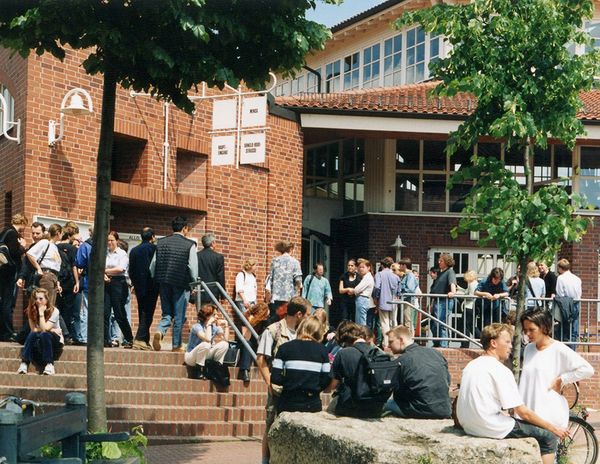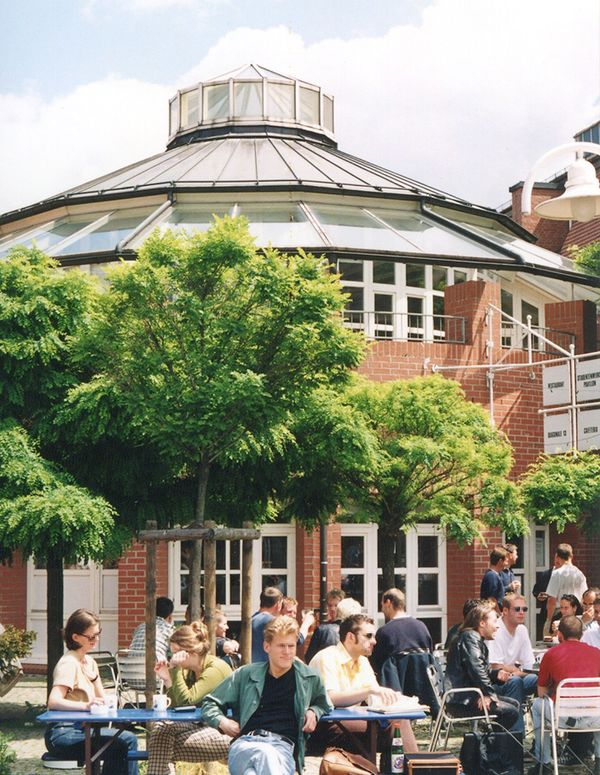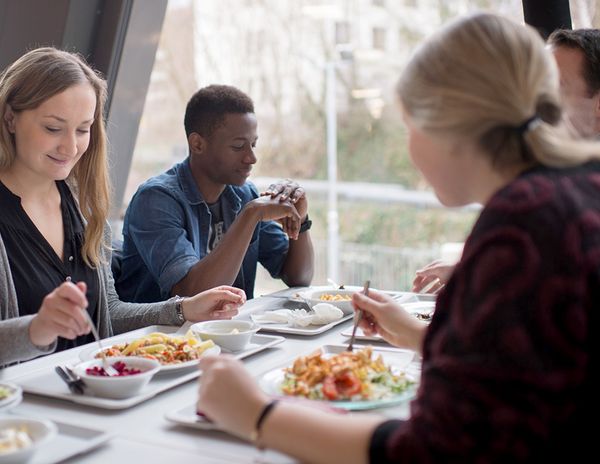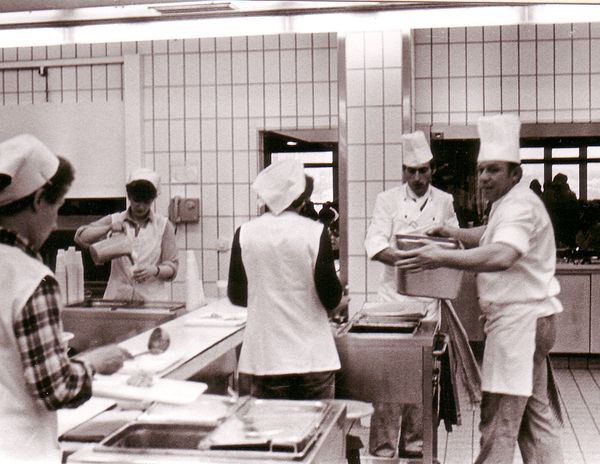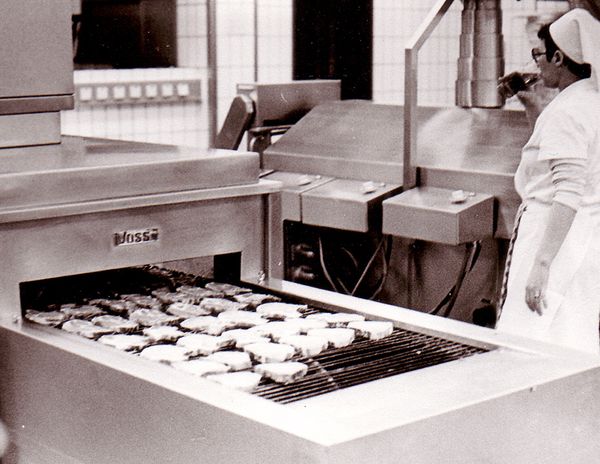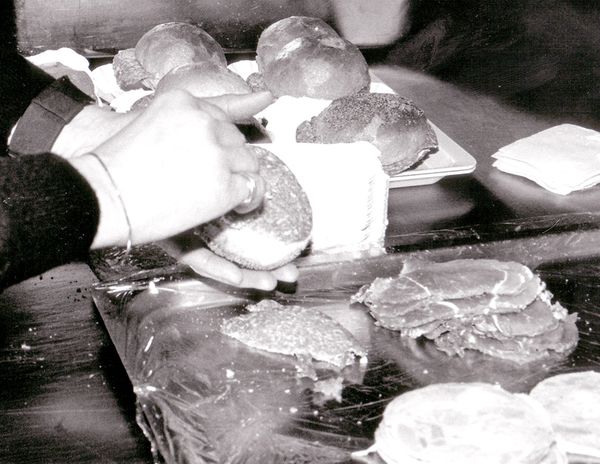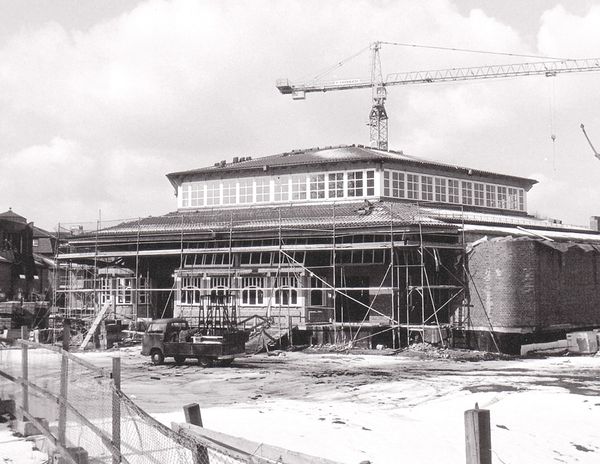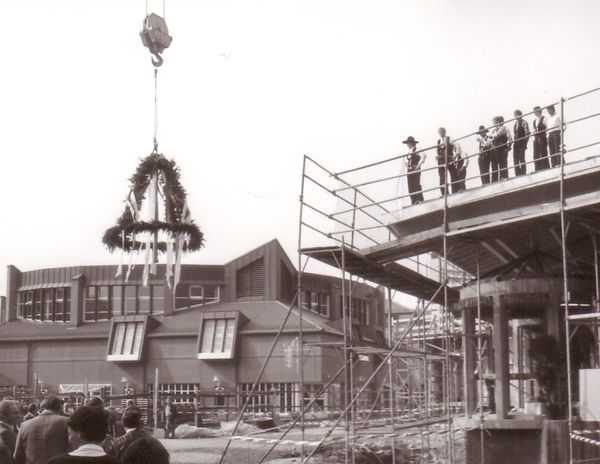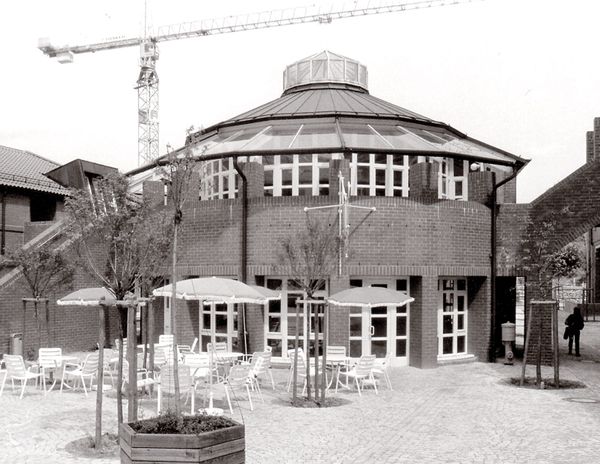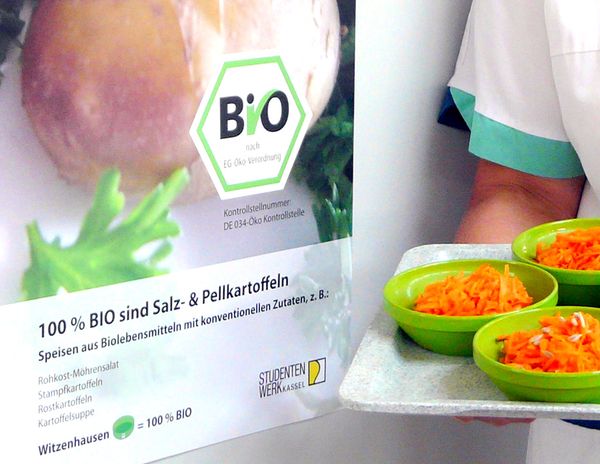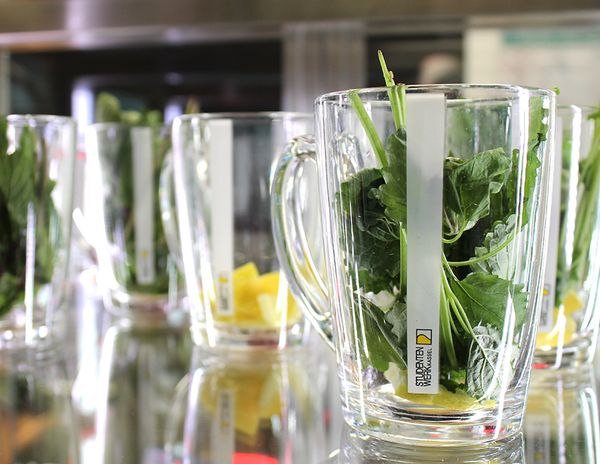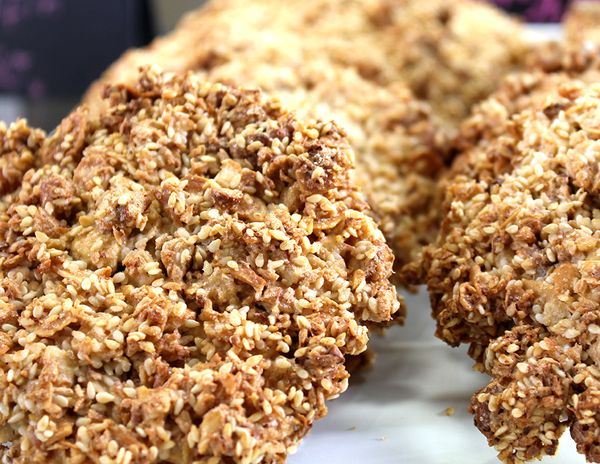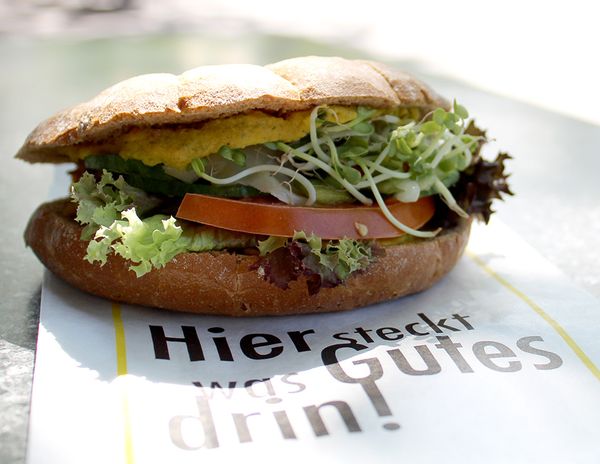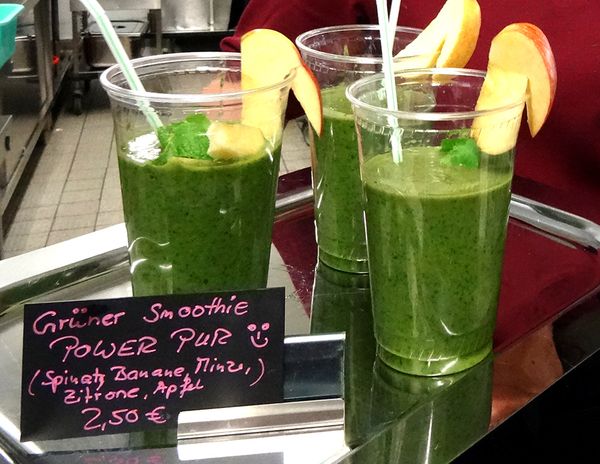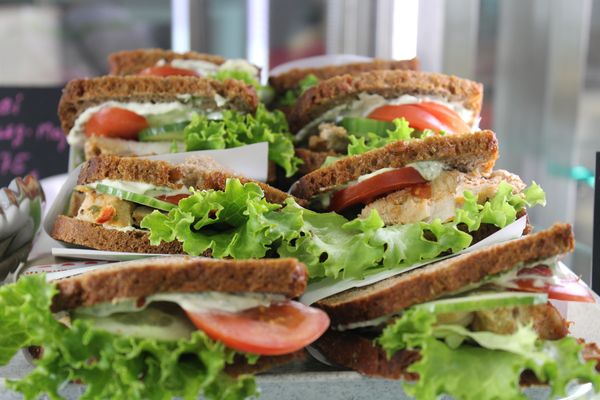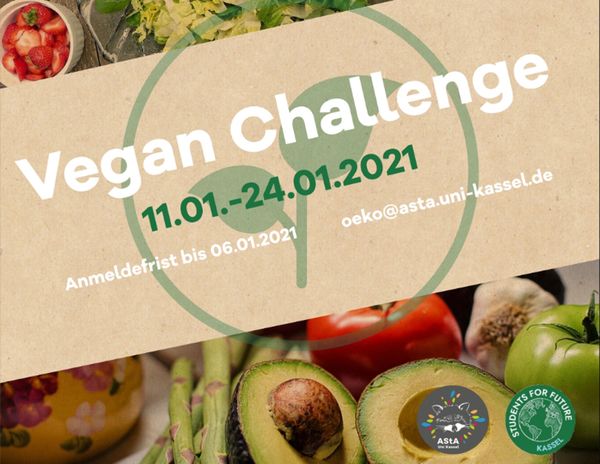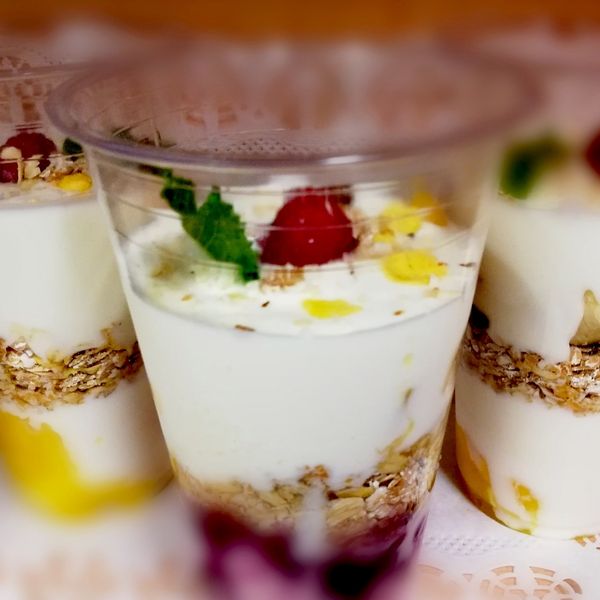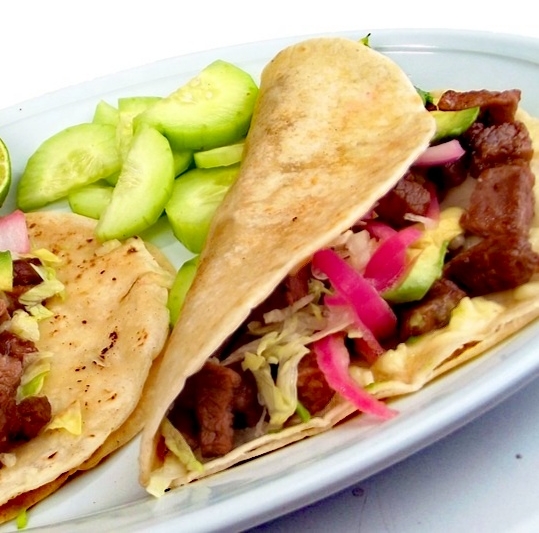Monthly Topic University Catering
50 Years Of University Catering
If you want to study successfully, you need delicious and healthy meals to recharge your batteries in between. A lunch in one of the six dining halls (Mensas) in Kassel and Witzenhausen is just the right thing for that. It's also inexpensive and fast. The wishes of the guests are reflected in the variety on the plates - from vegan dishes to the best home cooking or exotic specialties to classic cheeseburgers with fries.
In addition, in eight cafeterias, the Studierendenwerk has everything for a good start into the day, or for a snack to recover from the stress of studying. From hearty sandwiches to trendy overnight oats, there's something for everyone - and the tastiest coffee on campus and cool refreshments are, of course, available to match. Students are thus provided with all-round care - if possible, also with regionally and sustainably produced organic ingredients.
What does a typical Mensa day look like? When does it start? Do the vegetables come out of the bag or are they washed and chopped on site? Starting at 7 a.m. when the fresh food arrives, through whirling vegetable knives, steaming pots and sizzling pans, all the way to the serving counter: Adrian Krumme, deputy manager of the central cafeteria, explains in the video what has to happen to ensure that our guests get their lunch on time.
But because a perfect campus day includes not only the Mensa meal, but also coffee, snacks and the like, there are the cafeterias: Karsten Menz, head of the cafeterias at the Holländischer Platz campus, talks about specialties such as vegan and gluten-free rolls, smoothies and overnight oats for breakfast, hearty sandwiches and freshly baked waffles for in-between hunger pangs, and Fairtrade coffee and tea.
Meeting Places and Communication Venues
Cafeterias and dining halls are not only places where hunger and thirst are quenched, but also places of communication. This is where people meet, have a chat and relax.
In order to reach as many students as possible, the Studierendenwerk has created an offering for all tastes over the years, as diverse as the students themselves. And in the same way, the stories behind these places reveal all kinds of special features. We look back.
Beginnings at the AVZ
In 1972, the first Mensa had little claim to culinary finesse - at least in name. It is housed in the “Aufbau- und Verfügungszentrum” (AVZ, meaning Center for Construction and Development) on the outskirts of Kassel, where it offers space for 280 people. There is still no kitchen of its own; meals have to be ordered in advance so that a caterer can deliver them in time for lunch. The system does not last long: Already in the following year there is the first own temporary kitchen and 800 meals per day are cooked in the AVZ. In the 1970s, university catering is still expanding rapidly: several cafeterias are opened, the Mensa in Witzenhausen and the Mensa in the AVZ are renovated. By 1980, a total of more than 600,000 meals a year had been served.
The food on offer back then was nowhere near as varied as it is today. Schnitzel and French fries are the absolute favorites. Those who like meat-free meals don't always get their money's worth, but the famous “Mett-Igel” (created from minced meat, onions and salt sticks) sometimes makes it onto the menu. But society changed in the 1970s and 1980s. And this has an impact on the eating habits of students - to which the Mensas respond. In 1981, "reformed food" was introduced for the first time.
The Growing Campus Holländischer Platz
The Gesamthochschule Kassel (GhK) - as the University of Kassel was then called - grew enormously in the 1980s and 1990s. For this reason, the Studentenwerk also expands its gastronomic offerings. In 1987, the "Pavillon" cafeteria opens on Holländischer Platz, followed a year later by the then biggest dining hall Zentralmensa. In 1989, more than one million meals are sold in all facilities together for the first time.
Sustainability Becomes an Issue
What began tentatively in the early 1980s becomes increasingly commonplace in the 1990s: students live more ecologically and attach importance to a more conscious diet. In 1994, the Witzenhausen cafeteria introduced a daily "eco-menu" for the first time, and from 1999, organic foods were increasingly part of the menu. The commitment is rewarded: In 2003, the German Federal Ministry of Food and Agriculture awards the Witzenhausen cafeteria the "Biostar". In the same year, the university catering is certified organic and is allowed to use the organic seal. Since 2008, special tableware has been used to identify the organic dishes.
The cafeterias serve only fair-trade coffee with an organic label. Tea and sweets from fair trade and organic production are also served wherever economically feasible.
The Studierendenwerk will continue on its chosen path over the next decade - in 2017, the animal protection organization PETA awarded the Mensa of the Studierendenwerk Kassel three stars and ranked them among the "most vegan-friendly Mensas in Germany".
It is clear that the question of the right packaging is also answered here in a sustainable way: Reusable instead of disposable, deposit cups instead of disposable cups. And if certain guest requests or exceptional situations such as Corona time force the use of disposable packaging, then only with fully biodegradable and therefore more environmentally friendly materials.
Guests are enthusiastic about their Mensas and cafeterias and show this through high praise. This is why the Mensas have been several times awarded the "Golden Tray" to the best German Mensas by a student magazine. And innovation has not fallen by the wayside either: In November 2018, an old acquaintance returns to the Mensa family in the form of the "Moritz", this time with a self-service concept and a strong emphasis on plant-based foods.
Modern Thinking in University Catering
"Just schnitzel and fries alone won't cut it these days. Our goal is to always get the best out of our products and cater to students' wishes. In recent years, we have tried out more and more vegan and sustainable dishes - our ambition is to develop our recipes further and make them even tastier and more unusual," says Tim Sichtermann, head of the biggest dining hall Zentralmensa, confirming the innovative spirit of the creative university catering team. The "Regio-Plate," which has been offered weekly in the Zentralmensa since 2020 and for which 80 percent of the ingredients come from the region, i.e. from within a radius of no more than 100 kilometers around Kassel, also testifies to the willingness to venture into new territory and plan with an eye to the future.
Mensa fries - Legendarily good, unsurpassed delicious. Adrian Krumme, vice manager of the Zentralmensa at the Holländischer Platz campus, dedicates an extra video to them. For all fans who can't (or don’t want to) get through the day without Mensa fries.
music: "Evan King - Guardians" is free to use in any platform. Music provided by BreakingCopyright: youtu.be/CyiF0YctsA8

